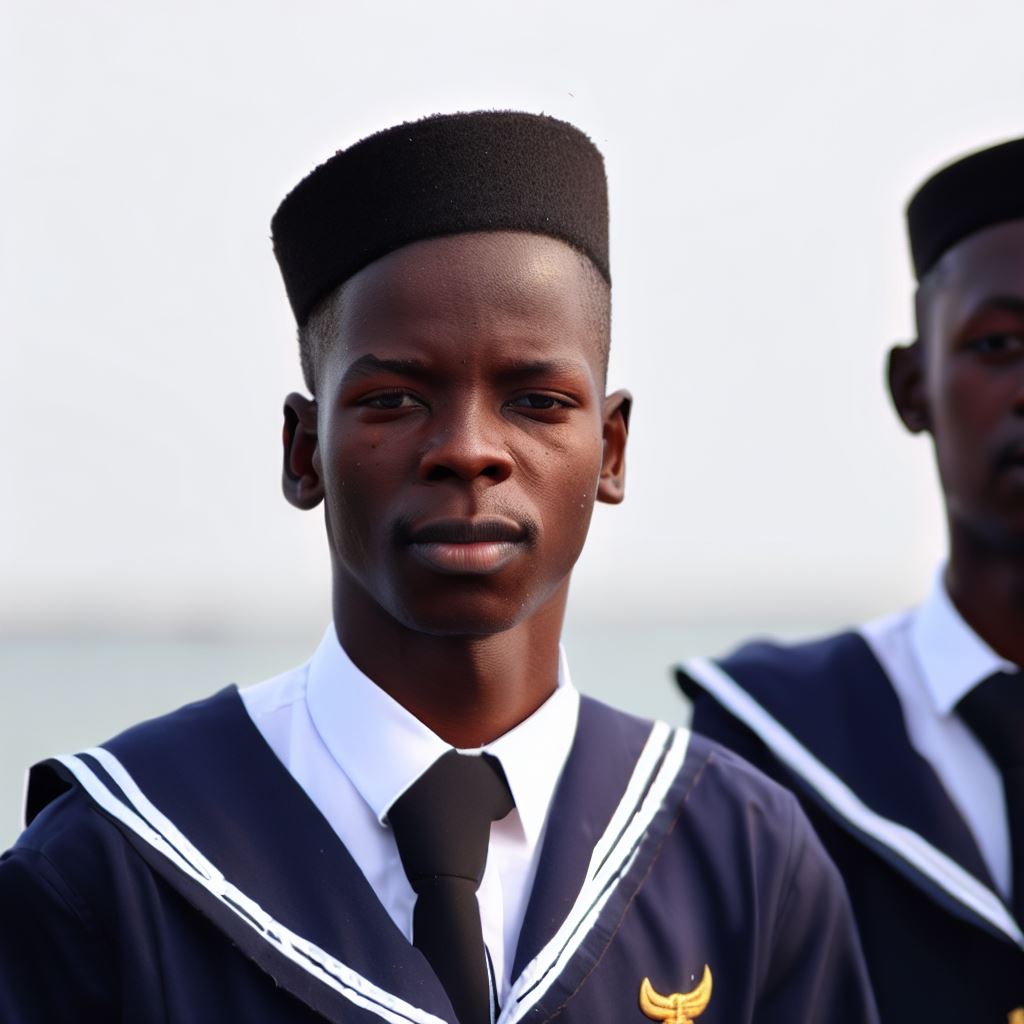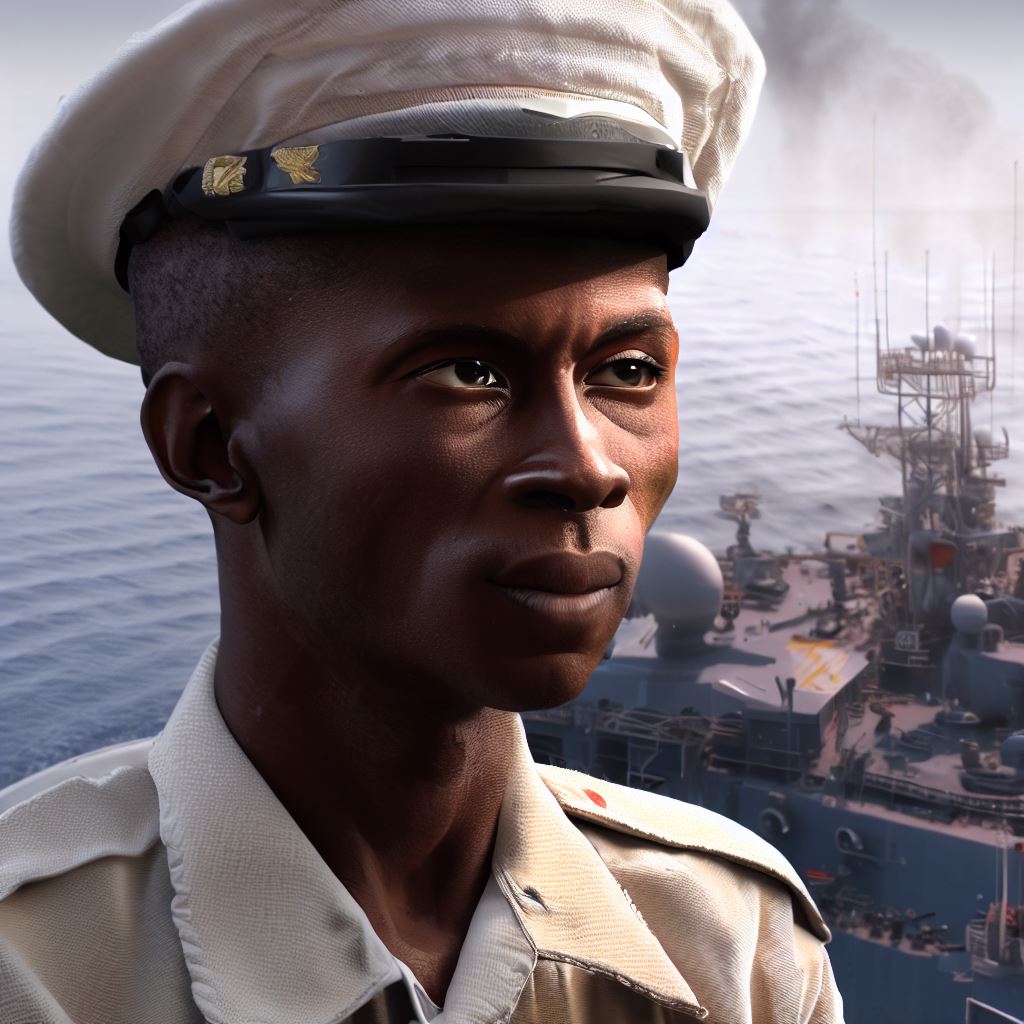Introduction
Maritime schools play a vital role in Nigeria’s development and the future of its sailors. In this blog post, we will explore the importance of these schools and provide an overview of what will be discussed.
Maritime schools in Nigeria are of great importance in the country’s economic growth and national security.
They provide vital training and education to produce skilled sailors who are essential for the thriving maritime industry.
In this blog post, we will delve into the significance of maritime schools in Nigeria and how they contribute to the nation’s economy.
We will also explore the range of courses and programs offered in these schools, highlighting their impact on shaping future sailors.
Additionally, we will discuss the challenges faced by maritime schools, including inadequate infrastructure, funding, and outdated curricula.
These hurdles hinder the development of skilled sailors and pose a threat to the industry’s growth.
Furthermore, we will provide insights into the efforts made by the Nigerian government and private sectors to improve these schools.
Initiatives such as modernizing infrastructure, providing scholarships, and engaging in partnerships with international institutions are being undertaken to enhance the quality of education.
Lastly, we will discuss the potential career opportunities available to graduates of maritime schools.
With the expanding global maritime industry, these schools create a pathway to lucrative and fulfilling careers for aspiring sailors.
Overall, this blog post aims to shed light on the importance of maritime schools in Nigeria and the critical role they play in preparing tomorrow’s sailors for a thriving maritime industry.
Stay tuned for insightful discussions and valuable information throughout this series.
The Role of Maritime Schools in Nigeria
A. Providing Specialized Education and Training
Maritime schools in Nigeria play a pivotal role in preparing tomorrow’s sailors.
They offer specialized education and training that equips students with the knowledge and skills needed to excel in the dynamic maritime industry.
1. Introduction to Maritime Industry
These schools provide a comprehensive introduction to the maritime industry, covering its various facets such as shipping, logistics, and offshore operations.
This foundational knowledge serves as a solid platform for aspiring maritime professionals.
2. Navigation and Ship Handling
Navigation is a core component of maritime education.
Students are taught how to navigate and handle different types of vessels, ensuring they can safely and efficiently transport goods across the world’s waterways.
3. Maritime Law and Regulations
Understanding maritime law and regulations is crucial to ensuring safe and compliant maritime operations.
Maritime schools educate students on international maritime laws and the importance of adhering to regulations, promoting safety and environmental responsibility.
B. Enhancing Maritime Skills and Knowledge
Maritime schools offer a wide range of courses that enhance students’ skills and knowledge in the field.
1. Different Types of Maritime Courses Offered
From marine engineering to maritime logistics, these schools provide a variety of courses tailored to students’ interests and career goals, allowing them to specialize in their preferred area.
2. Practical Training on Simulators and Real Ships
Hands-on experience is invaluable.
Maritime schools utilize cutting-edge simulators and real ships for practical training, ensuring that students are well-prepared for real-world challenges they may encounter in their careers.
3. Importance of Hands-on Experience
This hands-on experience not only builds competence but also instills confidence in future sailors.
It’s the difference between theoretical knowledge and the ability to apply that knowledge effectively in maritime operations.
C. Career Opportunities in the Maritime Industry
The education and training provided by maritime schools open up a world of career opportunities.
1. Diverse Job Prospects after Graduation
Graduates can pursue a wide range of careers, including ship captains, maritime engineers, port managers, and maritime lawyers. The industry offers diversity and mobility.
2. High Demand for Skilled Maritime Professionals
The global maritime industry is constantly growing, and there is a high demand for skilled professionals.
Maritime schools in Nigeria are instrumental in supplying this demand, contributing to the nation’s economic growth.
3. Promoting Economic Growth and International Trade
The maritime industry plays a pivotal role in Nigeria’s economy by facilitating international trade.
Maritime schools, by producing well-trained sailors, directly contribute to the country’s economic growth and its participation in the global economy.
In essence, maritime schools in Nigeria serve as the cornerstone for preparing the sailors of tomorrow.
Through specialized education, hands-on training, and a myriad of career opportunities, they are not only shaping skilled professionals but also fostering economic growth and global connectivity.
Read: Nigeria’s Ports: A Day in the Life of a Marine Oiler
Notable Maritime Schools in Nigeria
A. Maritime Academy of Nigeria, Oron
- History and background information: The Maritime Academy of Nigeria, located in Oron, Akwa Ibom State, was established in 1979 as a higher institution for maritime education and training.
- Courses and certifications offered: The academy offers various courses and certifications in maritime disciplines such as Nautical Science, Marine Engineering, Maritime Transport and Business Studies.
- Facilities and training resources: The academy is equipped with state-of-the-art facilities including simulators, workshops, laboratories, and a shipyard for practical training.
B. Ladoke Akintola University of Technology, Ogbomoso
- Introduction to the Department of Maritime Studies: The Department of Maritime Studies at Ladoke Akintola University of Technology (LAUTECH) was established in 2007 to cater to the increasing demand for skilled maritime professionals.
- Curriculum and academic programs: The department offers undergraduate and postgraduate programs in Maritime Management Technology, Maritime Law and Administration, and Maritime Transport and Business Studies.
- Collaborations and industry partnerships: LAUTECH has established collaborations with maritime organizations and industry partners to enhance practical training and employability of its students.
C. Federal College of Fisheries and Marine Technology, Lagos
- Overview of the college and its specialization: The Federal College of Fisheries and Marine Technology, located in Lagos, is a specialized institution that focuses on fisheries and marine technology education.
- Curriculum focus on fisheries and marine technology: The college offers various programs related to fisheries and marine technology, including Fishery Technology, Marine Engineering, and Industrial Safety and Environmental Management.
- Industry-relevant training and job placement assistance: The college provides hands-on training and industry attachment opportunities to prepare students for the challenges of the maritime industry. It also assists students in securing job placements after graduation.
These maritime schools in Nigeria play a crucial role in preparing future sailors and professionals for the maritime industry.
As the demand for maritime expertise continues to grow, these institutions provide quality education, practical training, and industry connections to equip students with the necessary skills and knowledge.
Whether it’s through state-of-the-art facilities, collaborations with industry partners, or specialized programs, these schools are shaping the next generation of sailors in Nigeria.
Read: Key Skills Required for Sailors and Oilers in Nigeria

Challenges Faced by Maritime Schools in Nigeria
Maritime schools in Nigeria face several challenges that hinder their ability to effectively prepare tomorrow’s sailors.
The following are some of the significant obstacles they encounter:
A. Inadequate funding and resources
One of the major challenges faced by maritime schools in Nigeria is the insufficient funding and resources available to them.
Government support for maritime education is limited, resulting in a lack of financial backing for these institutions.
This inadequacy impacts the quality of infrastructure and training resources they can provide to students.
To overcome this challenge, there is a crucial need for increased investment in the sector.
Adequate funding will enable maritime schools to enhance their facilities and offer comprehensive training programs.
B. Lack of awareness and career guidance
Another significant challenge is the lack of awareness and career guidance regarding maritime education.
There is insufficient promotion of maritime education to students, resulting in a limited understanding of the opportunities available in the sector.
To address this issue, it is essential to promote maritime education extensively, creating awareness among students about the potential career paths and benefits the industry offers.
Additionally, there is a need for effective career counseling and guidance programs that highlight the various options within the maritime field.
Collaborations between maritime schools and secondary schools can also play a vital role in providing guidance to students interested in pursuing a maritime career.
C. Outdated curriculum and training methods
Many maritime schools in Nigeria struggle with outdated curriculum and training methods.
It is crucial for these institutions to continuously update their curriculum to stay aligned with the evolving industry trends and international standards.
Additionally, the integration of technology into maritime education is vital for preparing students for modern maritime practices.
Industry collaboration in curriculum design ensures that the courses offered by maritime schools are relevant and up to date.
By working closely with industry professionals, these schools can incorporate real-world scenarios and practical knowledge into their training programs.
In fact, maritime schools in Nigeria face significant challenges that must be addressed to enhance the quality of education and training they provide.
Adequate funding, increased awareness, and career guidance, as well as up-to-date curriculum and training methods, are essential for preparing tomorrow’s sailors.
By overcoming these challenges, maritime schools can better equip students with the skills and knowledge necessary for a successful career in the maritime industry.
Read: Nigeria’s Marine Industry: Opportunities for Sailors
Opportunities for Improving Maritime Education in Nigeria
Maritime education in Nigeria has the potential to produce skilled professionals who can contribute to the development of the maritime industry and the country’s economy.
However, there are several areas that can be improved to ensure that maritime schools in Nigeria are adequately preparing tomorrow’s sailors.
A. Government and private sector collaboration
One crucial aspect is the collaboration between the government and the private sector.
The government should prioritize maritime education by increasing funding and support for maritime schools.
This would enable schools to enhance their facilities, provide quality education, and attract qualified faculty members.
Additionally, private sector partnerships can play a significant role in infrastructure development in maritime schools.
By collaborating with private companies, schools can benefit from the expertise and resources available in the industry.
B. Strengthening industry-academia collaboration
Scholarships and sponsorships are also essential to ensure that deserving students have access to maritime education.
These initiatives would motivate and encourage talented individuals who may not have the financial means to pursue their education.
Furthermore, strengthening industry-academia collaboration is vital.
Maritime schools should establish internship and apprenticeship programs with maritime companies to provide students with practical experience.
By working with industry professionals, students can develop essential skills and gain a better understanding of the industry’s demands.
Inviting guest lectures and engaging industry experts in the classroom can also enrich the learning experience.
Their insights and experiences can provide students with valuable knowledge beyond what is covered in textbooks.
Regular curriculum review and feedback from industry professionals must be a continuous process. This ensures that the curriculum remains relevant and aligned with industry requirements.
Industry professionals can provide valuable insights into emerging trends and technological advancements, enabling students to stay updated.
C. Awareness campaigns and career expos
Awareness campaigns and career expos are crucial for promoting maritime education and attracting students.
Schools should actively engage with schools and communities to create awareness about the opportunities available in the maritime industry.
By organizing career expos and seminars on maritime careers, interested individuals can gain a deeper understanding of the various career paths and opportunities available.
These events can provide guidance and information about the necessary qualifications and skills required for success in the maritime industry.
Finally, it is essential to encourage young individuals to consider maritime education as a viable option for their future.
Highlighting the potential for career growth, job security, and international opportunities can inspire them to pursue maritime education.
In short, there are significant opportunities for improving maritime education in Nigeria. Collaboration between the government, private sector, and academia is critical.
Increased funding, private sector partnerships, internships, and apprenticeships, curriculum review, awareness campaigns, and career expos can collectively enhance maritime education and produce skilled sailors who will contribute to the growth of the maritime industry in Nigeria.
Read: Challenges Faced by Sailors and Oilers in Nigeria Today
Conclusion
Maritime schools in Nigeria play a crucial role in preparing the sailors of tomorrow.
They equip students with the necessary skills and knowledge to thrive in the maritime industry.
These schools contribute to the economic growth of Nigeria through job creation and foreign exchange earnings from maritime activities.
It is imperative that stakeholders recognize the importance of supporting and improving maritime education.
This can be done by providing adequate funding for the schools, enhancing training facilities, and collaborating with industry experts.
By investing in maritime education, stakeholders will contribute to the development of a skilled workforce that can meet the growing demands of the industry.
Furthermore, a strong maritime education system will not only benefit Nigeria but also have a positive impact on the country’s maritime industry.
The industry will have access to qualified and competent sailors, enhancing operational efficiency and safety standards.
This, in turn, can attract more investment and international collaborations, positioning Nigeria as a key player in the global maritime arena.
Therefore, it is essential for all stakeholders, including government entities, private sector organizations, and industry professionals, to come together and support the growth and improvement of maritime schools in Nigeria.
By doing so, they can contribute to the long-term development and success of Nigeria’s maritime industry.




